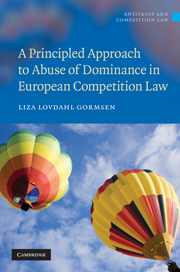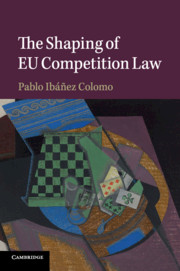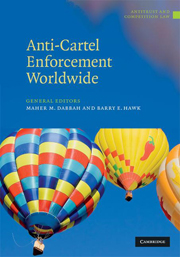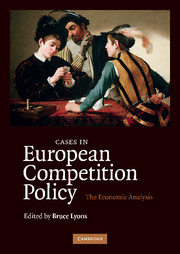A Principled Approach to Abuse of Dominance in European Competition Law
Three questions surround the interpretation and application of Article 82 of the EC Treaty. What is its underlying purpose? Is it necessary to demonstrate actual or likely anticompetitive effects on the market place when applying Article 82? And how can dominant undertakings defend themselves against a finding of abuse? Instead of the usual discussion of objectives, Liza Lovdahl Gormsen questions whether the Commission's chosen objective of consumer welfare is legitimate. While many Community lawyers would readily accept and indeed welcome the objective of consumer welfare, this is not supported by case law. The Community Courts do not always favour consumer welfare at the expense of economic freedom. This is important for dominant undertakings' ability to advance efficiencies and for understanding why the Chicago and post-Chicago School arguments cannot be injected into Article 82.
- Challenges the current acceptance that consumer welfare is the main objective of Article 82, thus giving the reader an alternative viewpoint
- Explains why the Chicago and post-Chicago School arguments cannot be injected into Article 82, helping the reader understand why it is and has been so difficult for dominant undertaking to advance efficiencies under Article 82
Reviews & endorsements
'The author is certainly right in her diagnosis that the internal struggles within the Commission have resulted in a Guidance Paper that is torn between faithfulness to the existing case law and the desire of parts of the Commission to advance the more economic approach; and she is also right in pointing out that this vacillation is not conducive to legal certainty.' Florian Wagner-von Papp, Common Market Law Review
Product details
April 2010Adobe eBook Reader
9780511686375
0 pages
0kg
This ISBN is for an eBook version which is distributed on our behalf by a third party.
Table of Contents
- 1. Introduction
- 2. Consumer welfare theory, different schools of thought and efficiencies
- 3. Objectives
- 4. The legitimacy of the consumer welfare goal in Article 82
- 5. The role of effects in Article 82
- 6. Guidelines
- 7. The way forward.







.jpg)
